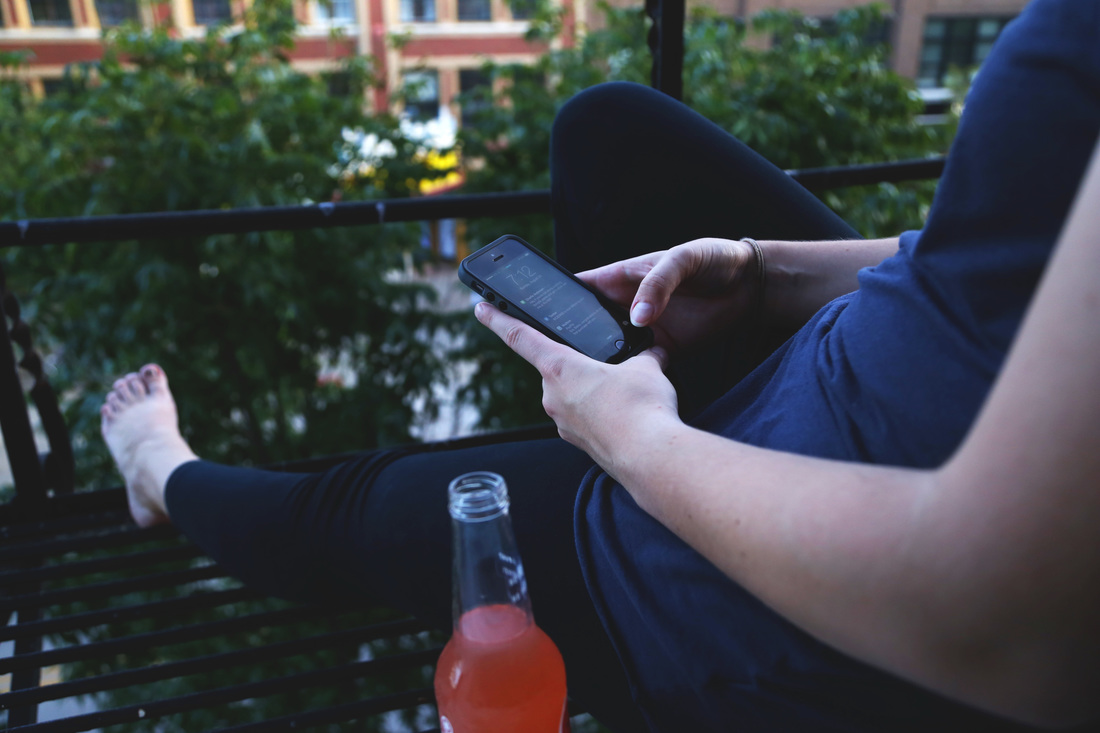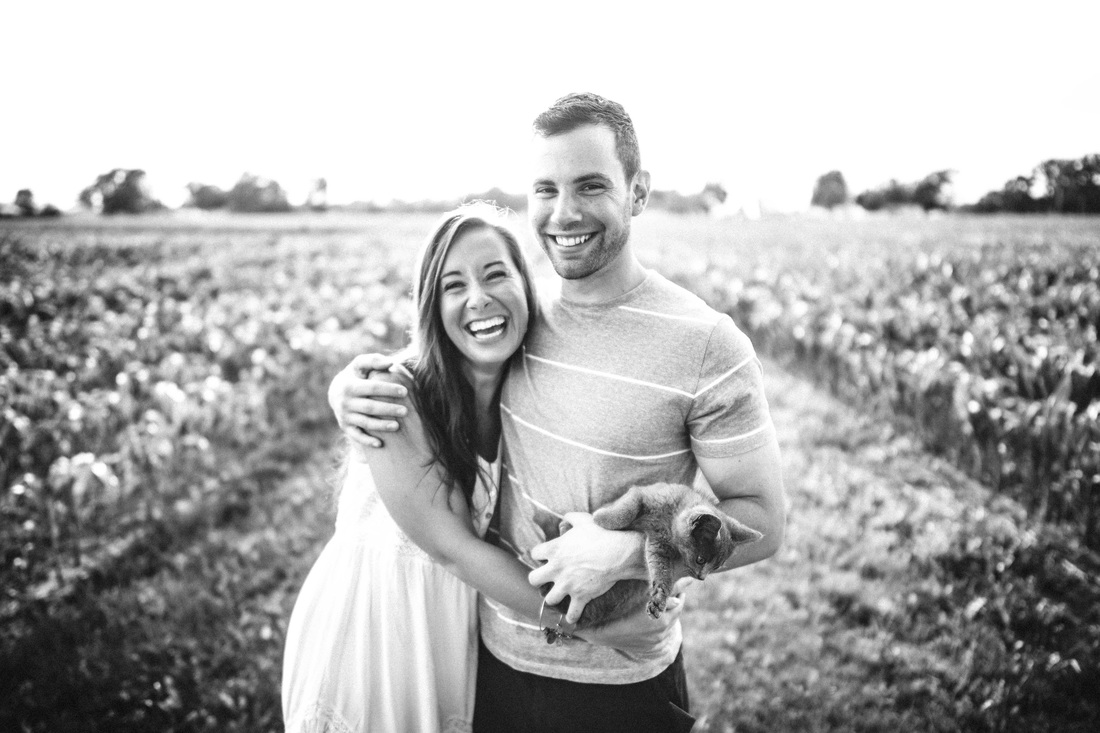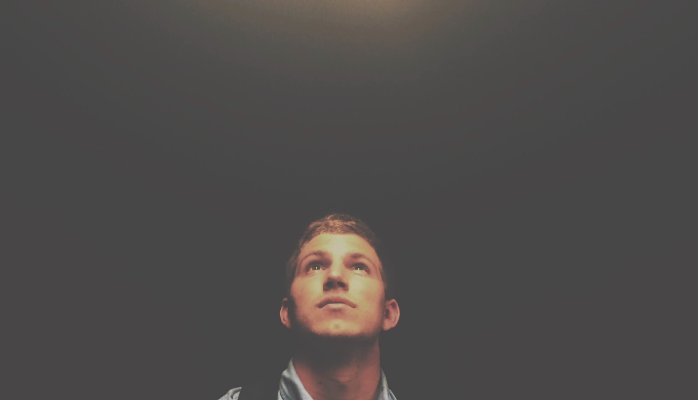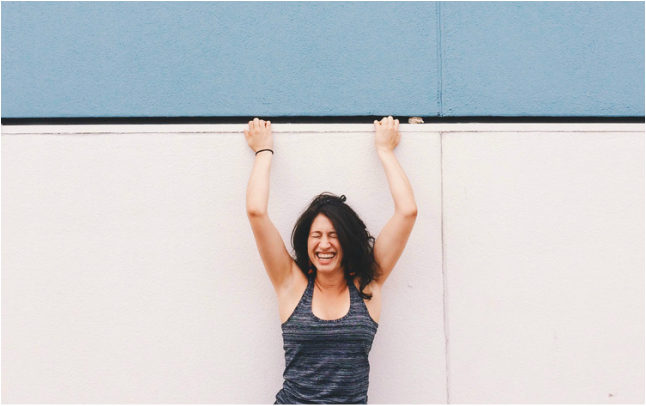|
What Is Coaching Anyway?
Coaching sessions are about an hour or more on the phone or in person and involve extensive dialogue. The purpose is not to offer therapy, relaxation or coping mechanisms but rather to find a pathway that works specifically for you, so you can apply it every day to your life. Language is important because a word or phrase that triggers understanding in one person may confuse someone else. There is no script, just a mutual connection. Fit is important. One of my favorite quotes that echoes this philosophy is: "The teacher and the taught create the teaching." As a coach, my goal is to try another tack when there is confusion and to continue deepening the exploration when there is understanding. Being A Client Most of my clients have a strong desire to learn and grow. They want to be better versions of themselves. The focus is often on work: being a better leader, managing time, communicating effectively. We also cover other areas such as work/life balance, having a stronger sense of purpose and meaning, being a better listener, partner, and even parent. There's a notable commitment to self-understanding. This is ultimately a path to self-awareness. How can it be any other way? Only you know the path towards the goals you identified. I serve as a brief companion on that long journey of self-reflection. A Peek Into A Coaching Session Below is a sample of how a session could go: Client: can you give me ways to be calm and focused when I'm at work? Coach: tell me about a time when you were completely relaxed and comfortable just where you were. Client: it was at my best friend's house when we were talking about our kids. Coach: what exactly was comfortable about it? Client: there was a natural ease to the conversation where I didn't have to struggle to be myself. I wasn't wearing a mask, the way I feel like I do at work. Coach: why a mask? Do you not feel like yourself at work? Client: in a way. I feel out of place, like I have to try to be someone else. Coach: where does that thought that you have to be someone else come from? Client: doubt, I guess. Because I feel like I don't know what to do to take care of the situation. Coach: why don't you feel doubt when you're at your friend's house? Client: because I'm completely accepted in that environment. Coach: Okay. So what can you do to create acceptance of yourself at work? Client: I suppose I can express myself truly. Coach: just as you are? Client: yeah I suppose. (Pause) Client: and then I'll be at ease because I'm myself. Coach: now let's talk about ways you can remind yourself of that when you're at work... The conversation continues until we figure out triggers that work in different environments, such as at work, home, or in stressful situations. We work together to identify habits that enable self-awareness and situational awareness. This is only 10 minutes out of a 60 to 90 minute conversation, where we discover tactics, techniques, and methods that make sense for the client. Figuring out a path specific to them holds greater value because in fact they themselves discovered it. An Opportunity To Reflect We rarely give ourselves the opportunity to have these conversations about self-growth, self-improvement and self-reflection. We might have done this when we were younger, perhaps in college, but our busy lives don't allow us this luxury often, if ever. That is the purpose of coaching. Typically, my clients start with a commitment of 3 months so they can experiment and see results, but clients have stayed on for years because they see continual growth. Sometimes, my clients take breaks for 3-6 months. I hear from them if and when their path has wavered or when they are looking to grow along a different path, or perhaps deepen their knowledge of themselves. Everyone needs a place for reflection, whether it's your daily journal, your religious institution, your community or a good friend you talk to regularly. Reflection makes you better, not tomorrow but today. Being A Coach I have had various roles in corporations - executive, consultant, employee, entrepreneur - and I continue to work in healthcare to improve the system of care for patients. I live the life my clients live, which tunes me into the daily struggles we all face at work or otherwise. Coaching is more than a role for me though. I revel in it. I cherish and respect this process. It's what I think about naturally. It's who I am, and what moves me. I get energy from every phone call and meeting. Hard questions need attention and time, which is the point of coaching. We get that time to step back and evaluate, and build strategically towards the future. What comes out of it may completely change how you do things, or just tweak it a little bit, depending on what's right for you. Regardless, you learn something about yourself through the process. Gaining in-sight that is invaluable to how you see and interact with the world. -- What would you work on if you had a coach? If any of this appeals to you, click here to learn more about my work, or simply email me. I always start with a free 30-minute session to see if there's a fit. A quick plug: Starting next Tuesday, I'll be teaching Developing Mindful Habits, a 4-week online course that helps you have less stress and worry and be more productive and creative at work.
Take a look and see if it's right for you, and please share it with others! -- Take it easy. There will always be another hard project, hard job, difficult coworker, tough situation or some other thing you'll have to deal with. These difficult things will make you difficult if you let them. Instead, approach them easily, with grace. Lightly work through them, not necessarily protecting yourself, but rather being part of it to the degree you don't hurt yourself. That means not giving yourself a hard time too. Dealing with hard things easily lets you know when "enough" approaches. Going past "enough" is not bad in and of itself, but it's something many of us do unconsciously. Choosing to do it puts you back in the driver seat. You become easy-going because you accomplish things easily. Don't cut corners though. This isn't about half-assed work or not trying hard. That's just another form of protecting yourself and will make things even harder as time goes on. You're only doing less now to do more later. Start simply by looking at how you walk, talk, and sit. How much effort do you put in these activities you do all the time?
A good question to ask yourself is: Are you walking, talking or sitting with your mind? What would it be like if it were just your body? Be light with yourself first and soon you'll be lighter with others and your work too. Smile and others will smile too. And things may just be a little easier for everyone... -- What do you do to take it easy while working hard? Are you aware when you've gone past whatever "enough" means for you? Share your thoughts with me over email. DIY Advice
Around the Holidays, there's a lot of advice-giving that happens, especially from family members and friends you haven't seen for a while. Much of the advice is anecdotal but it comes from that good intention of helping another person out. Some advice can be step-by-step and clear, but most advice lacks empathy. It doesn't necessarily consider you, it considers only the person giving it. There are a lot of assumptions in it that their reality is similar to yours, when that could be completely off the mark. The advice I've found most useful has been what helped me figure it out for myself. It was self-referential, in that I already had the answer and just needed a few words and phrases from someone else to uncover it. There was a connectedness to it in that the person took the time to consider it from my vantage point. You + Me = We The idea of "co-emergence" is that you empathically place yourself in another's perspective while they do the same so that a solution is created, or rather co-created. From a Western perspective, you "walk a mile in their shoes" before advising them. From an Eastern perspective, one of my favorite sayings is, "The teacher and the taught create the teaching." When I look back on successful projects, decisions, and events, I can see the truth in both sayings. And when things didn't work out, I recall the situation being one-sided, not considering everyone involved. We often act from the idea that we are lone agents in the world. The very definition of "co-emergence" proves this impossible. Of course there's you and me, and our self-interest. But there is also the "we", and when two people act from that perspective, things seem to work out, and much more smoothly. A Mutual Handshake It's like going to a networking event and putting your hand out there for a handshake. When the other person does the same at the same time, the synchrony is clear and conversation flows easily. If you held back your hand until someone else put their hand out first or if you put your hand out first and the other person was slow to respond, things would be a little off. You may not pay it much mind, but it might feel awkward at the outset. In the same manner, if you're receiving advice without empathy, how can you be empathetic to turn the tide from personal annoyance to mutual benefit? And if you're the one giving advice, how can you imbue empathy into the conversation? -- Think of a time when you were getting or giving advice. Was the advice asked for or warranted? What role did empathy play in how the advice was received or given? Share your thoughts with me over email. A Simple Habit To Stay Level-Headed
Take 5 deep breaths during transitions in your day. What are transitions? Every time you go from home to work, work to home, lunch to work, work to lunch, meeting to office, meeting to meeting, and other moments when you shift from one mindset to another represents a transition. In fact, an even simpler way to define transitions is when you're "on the go" or when you feel like you are. Our go-go-go mentality rarely lets our attentive mind take a break. Rather, it's wired to look for even more things to pay attention to, like checking email, social media, news etc. And most of us operate on the belief that we're more productive because we complete tasks on the go. That may be true, but how do you feel at the end of the day? How energized or exhausted are you? How much caffeine do you need to maintain that level of alertness? And how much of a crash do you feel later? Mindfulness is about balanced productivity Taking those 5 deep breaths during transitions is a simple start.
Mindfulness, especially when it's used in the work setting, can have phenomenal benefits:
An Online Course on Developing Mindful Habits I'm teaching a 4-week online course in mid-January on Developing Mindful Habits. You'll learn mindful habits that will actually keep you calm, cool, and collected. The early bird discount ends tomorrow so take a look today. Free 30-minute Phone Coaching
I am offering FREE coaching sessions next week from Monday, October 26th to Friday, October 30th. This is completely open-ended and you can choose to discuss any topic that you like. Email me with 3 dates/times that work for you. Why Is This Free? Self-awareness, yours and mine, is the purpose of these conversations. I coach, write, and speak a lot about mindfulness and psychology, and typically it's to an audience that is already somewhat tuned into the message. I love that, but also want to reach others and learn what they're struggling with and if mindfulness could help. There are many who don't understand what mindfulness even is, or think of it just as new age meditation. And there are others who are curious whether it would apply to their daily work and personal life, but don't know how to do it. This offers an opportunity to co-create an outcome that is unknown, but the gain is mutual. You're offering me your time, and I value that. What Can We Discuss? Here are a few suggestions on topics I've discussed with others in the past:
These are just a few examples, but you can be as specific as you like. Schedule A Time Here is how to sign up: Email me three dates and times that fall during the next week, from Monday, October 26th to Friday, October 30th. This offer will only be available during this time period. Forward this to a friend or colleague who you think might benefit! How Have Others Benefited? "Akshay provided simple and clear methods I can easily incorporate into my life to relieve stress and increase productivity." "I am confident that I am NOW a better person and well on my way towards where I want to be in my life. Akshay's coaching methods have been helpful professionally and personally in tandem." "Akshay is adept at explaining the meaning behind some esoteric terms and conveying how they relate to everyday life." The key to mindfulness is choice. You can choose anger, acceptance, denial, frustration, love, affection, judgment, humor, empathy, disappointment, kindness, etc.
Becoming aware that you have a choice can be a 2-sided coin:
This is where regular practice comes in. If choice is ever present, you can't be perfect the first time or even the thousandth time. You're liberated from the belief that you'll get there, because there is now. The practice of continuously choosing is the process of mindfulness. You always have a choice now, and in the next moment, and the next, and so on. In fact, it feels almost unfair that we have to choose all the time. So unfair that it's hard to take seriously, and we laugh at the option. And our attitude becomes relaxed and easy, making the attitudes of those around us easy, and the domino effect takes over. Knowing that we have the choice to define and redefine ourselves moment to moment is awesome to consider. And even if you consider it seriously, you'll simply end up smiling. -- A few links that inspired this post: Seth Godin: Attitude is a skill Greater Good Podcast: Srikumar Rao on Happiness at Work "Thou Mayest" passage from from East of Eden, by John Steinbeck -- Free Coaching: I'm offering FREE coaching during the week of Monday, October 26th to Friday, October 30th. It's a no-strings attached, open-ended 30 minutes on the phone where we can discuss stress, productivity, leadership, mindfulness, work/life balance, resilience, meditation, or whatever else you'd like to work on right NOW. Email me with 3 dates/times that fall during October 26th-30th if you're interested. More details next week. When I'm having a really busy day, my basic bodily needs go out the window.
I don't go to the bathroom as often as my bladder wants me to, I ignore eating for long stretches of time, I don't get out of my chair for hours on end, I don't get outside to breathe the fresh air, I don't touch my water bottle though it's right in front of me, I don't even close my eyes because I am staring at the computer so intently. The after effects of this behavior vary from minor irritability to an all out crash where I need to pee, eat, drink, and take a nap as quickly as I can, in any order possible, or even at the same time. How do you avoid crashing during a busy day? Prioritize one aspect of your life. As a starting point, pick from the categories below:
Keep in mind one of my favorite Stephen Covey quotes: "The key is not to prioritize what's on your schedule, but to schedule your priorities." Body For example, if you prioritize your body, it takes care of the majority of bodily functions you've been ignoring.
Mind Now, if you prioritize your mind, you can avoid it from shutting down.
Heart If you prioritize your heart, you keep kindness, friends, and family at the top of the list.
Spirit If you prioritize your spirit, you may seek meaning, purpose, or fulfillment every day.
Make your own "no matter what" list For you, some of the bullets above may be more appropriate in one category over another. It's up to you what you choose to prioritize. You can define your "no matter what" list however you like, but you need to define it in a way that makes sure that it's a priority in your life. The hope is your work, hobbies, friends, family are all part of the body, mind, heart, spirit balance, but that isn't always the case. Situations--money, obligations, needs--don't always allow for it. But you can work up to it slowly. Eventually, by prioritizing all four categories, you achieve a balance that feels right for yourself, even if not your situation. What do you prioritize in your life right now? How do you make it a habit? What is your definition of balance? Share your thoughts with me over email. These emails only come to me and are never shared with others. In fact, they often help me come up with ideas for future posts. I can jump on a 2 foot high box from the ground with both feet planted because I can visualize myself doing it. Being able to see the process and the result is why I don't catch my foot on the box and fall forward.
I can also see myself clearing the edge of a 2.5 foot high box without falling, though it starts feeling a little out of my reach. If it's a 3 foot high box, I can't see myself completing the jump and that's when uncertainty sets in. The first doubt is mental. Seeing others clear 3, 4, or even 5 foot high boxes helps because then I know it's possible. Perhaps after months, maybe years of training my legs, I may be able to get there, but I will first and foremost need to see myself doing it without falling for it to be possible. Success in other areas Same goes with running a mile, or being a CEO, or starting a company, or cooking a Thanksgiving meal, or hiking the Grand Canyon. If you can see it, you can do it. If you doubt yourself, there's two options available to you:
Option 1 - Training so you can see This is a more linear approach to doing what you want. Say you want to get a promotion to a managerial level. You're not sure about your leadership capability though, so you read books, take a management class, practice delegating, learn how to motivate and question, and in general get better at managing people and projects. Over a period of time, you can see yourself being a manager because you've trained for it. Option 2 - Seeing so you can train Now take option 2, where you see yourself doing the thing you want to accomplish and figure out how to train accordingly. Using the same example of getting promoted to a manager, you start visualizing yourself leading people and projects. You not only mentally picture the reality, you also write down what it would be like to act as a manager versus an employee. You walk into the office and look at your projects with a managerial hat on, thinking, "What would a manager do?" You observe other managers you admire and mimic their habits and behaviors. Over a period of time, you feel confident that you can be a manager because you've been seeing yourself do it. What's the real difference? In both cases, there's practice and training involved, but from a slightly different perspective. You're still learning to be a manager, just from a different vantage point. Option 1 helps you train separate from your day-to-day until you feel ready to apply your training in your life. Option 2 helps you see how to train within your day-to-day and feel out the difference immediately in your life. One option is no better than the other, but typically we assume option 1 is the only option. Some of us come across option 2 and find it to be non-linear, and perhaps even a little strange. That's true of any new practice. It feels odd at first until you try it a few times. Option 2 will happen anyway In fact, there comes a point in option 1 when you've trained enough that you can start seeing yourself moving to the next level. The visualization becomes a reality in your mind at some point, and you feel like you can take a leap of faith, especially if it's adding inches to your box jump. You can't tell why you feel that you can do something you thought you couldn't do before, but you just know. Option 2 simply starts at that inflection point. It assumes you're there already and asks you to train in a way that fits that new imagined reality. This works for things you do not want to do as well, such as habits you want to break, or behaviors you want to change. You have to be able to see yourself notdoing them in order for them to be real. As Seth Godin puts it, imagining is usually the first step. Which option do you usually choose? Does there come a point when you can see yourself doing something you hadn't done before? How does that change your ability to do it? I'd love to hear your perspective, so email me your thoughts. Lately, I've found myself taking the longer route home.
It's longer by a minute or so, and goes through a residential neighborhood with large trees that hover above the road, hanging their leaves in a makeshift canopy. I take a turn around a stone wall with foliage growing between the gaps in the stones. The houses in the area have an aesthetic that reminds me of my childhood home, evoking calm and comfort. This sounds idyllic, and yet until recently, I had been taking the faster route home because of my love of efficiency. This route takes me through a more commercial area on a tight road where I have to be cautiously careful to drive within the lanes. I make a turn near a gas station, having to smell the fumes of gasoline as I drive by. There's a stark difference in scenery when I choose destination over the journey, but a part of me just wants to get home sooner to relax in a place I find calm and comfortable. Sound familiar? I recently read a line in a novel that pointed out another approach: "It is not the destination that matters, but how one arrives there." In a more direct way, it echoes the famous quote by Ralph Waldo Emerson: "Life is a journey, not a destination" When I am in destination mode, "there" is more important than "getting there." But even after I walk in the door, oftentimes I'm still prioritizing speed. I'm ready to get out of my work clothes, start making dinner, plan my evening, do some chores, and anything else that gets me "there." It takes a while till my home environment slowly seeps into my bones and ushers in the relaxation I so thoroughly need. Knowing that the need for efficiency is still in my system, I sometimes meditate when I get home or listen to music I find soothing, or just lie in bed for 10 minutes. All are techniques that work, and all are coping mechanisms that avoid the root of the problem - my belief that the destination is more important than the journey. When I'm in journey mode though:
I'm just enjoying the process of getting there. I still want to get home, but not at the expense of enjoying the journey. I might be five, or even ten minutes late, but what difference does that make in the scheme of things if I walk in more relaxed, happy, easy-going? Isn't that why I was doing all those relaxation techniques when I got home anyway? Choosing journey over destination becomes an attitude. In the summer, I favor the journey most of the time. In the winter, when both roads are equally dreary, and a warm home is calling to me, I find myself taking the faster route. But, when I think about it, the quality is embedded in the shorter amount of time it takes me to arrive. The journey still matters. Turns out the more commercial route has an overhang of beautiful lights along the way, so it serves as a replacement for the tree canopy above the cars! Which route do you choose more often? Destination or journey? Please email me your thoughts. These emails come only to me and help prompt ideas for future posts. In fact, let me know if there is something you'd like me to write about, in terms of mindfulness, spirituality, or personal growth, and I'll do my best to reflect that on the front page. I've been watching Game of Thrones lately, and observing the different factions rally troops behind a cause with symbols, words, rituals, and hierarchy lets me see the Machiavellian conditioning at play:
It's a show, based on a book, about a fantasy world, in one author's mind. It lets you see from an objective standpoint the symbols of pride, power, and influence we hold so dearly due to the conditioning of our own culture:
How are our flags different from the GoT banners? How are our rituals and salutes different from the indoctrination in the show? How are our slogans different from the oaths taken by the characters? It seems that with politics, religion, and money, things quickly get complicated because it's difficult to look at ourselves from an external lens. It's hard to be aware and empathetic when we are directly involved. One of my favorite quotes is by Upton Sinclair: "It's difficult to get a man to understand something when his salary depends on his not understanding it." This can either be viewed as a judgment to blame someone for not understanding something, which does little except outsource ownership of the situation. Or the quote can be used as an observation to help yourself or others become aware of their underlying motivations. Once you're aware, you can make more informed decisions. That's situational awareness in action. With this awareness mindset, you tune into the carefully crafted language in media, politics, and religion meant to evoke a certain sentiment, or agenda. You pay attention to the messaging that overlays the root of the problem. You see the conditioning behind the culture. You see through what is being said to the true intention that lies underneath. This process invariably starts with questioning what you see:
When you travel, you think of these questions naturally, opening up a novel world, and breaking down what you knew before. You can also practice this where you live in everyday situations:
You're building an "awareness" muscle that allows you to step out of a situation and look from an observer standpoint at what is happening. You're still involved and connected, in a much more alert and inquisitive way. As you practice awareness in real-life scenarios, you'll notice being more situationally aware in general. What are ways you use to objectively observe a situation? How do keep an eye out for blind spots? Please share your thoughts via email. I'm curious about your experiences. |
Coaching Consulting
|












 RSS Feed
RSS Feed